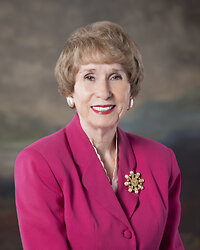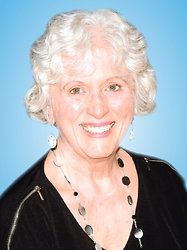There is a story about a mountain road that was so dangerous that wreck after wreck occurred there. It was so bad that a town, located below the mountain, created a mission to care for the crash victims. The town's mission was admirable, but it did not deal with why the people were crashing on the road in the first place. The townspeople needed to warn drivers about the real dangers and consequences of traveling on that dangerous mountain road.
When we transfer this story and its lessons to life, there are people we see going down a path that leads to destruction and suffering. Sometimes we do not say anything because we are afraid that they will be angry with us. We wait until they wreck, and then we are there for them. Some people,
when given a warning, ignore it and go down that road anyway. Then when
they crash, they feel like victims and complain that life is not fair.
Why didn't they pay attention to the warning? Some know what is right
but go down that dangerous road anyway.

We do not see things as they are,
we see things as we are.
we see things as we are.
â€" The Talmud
This story reminds me of a passage that I came across the other day in Dr. Henry Grayson's book, Mindful Loving. The passage reads: "You cannot purify the water downstream when there are sources of pollution that are still upstream." The townspeople in the above story who were trying to confront the problem by working downstream. Eventually they realized that all they were doing was putting a Band-Aid on the problem. What they were doing was not stopping the wrecks, so they moved upstream. We cannot change the behavior without addressing its source.
We wonder what pollution is causing wrecks in our own lives? How is our own pollution affecting our personality, how we think of ourselves and relate to others? Another question arises: What beliefs did we form about ourselves during an earlier time of pollution? The danger is that instead of questioning these beliefs, we live in such a way as to prove them correct. What is sad is that we may never go upstream to question and challenge the source of these "beliefs" about ourselves and our potential. We may spend our entire life accepting these beliefs and wondering why things are not right downstream. Unless we go upstream, we may keep experiencing more and more wrecks.
The truth is that all of us are dealing downstream with pollution coming from upstream. Each of us needs to go upstream and confront the issues that are polluting our self-image and our decision making to free ourselves from their effects.
Dr. William E. Austin is a licensed psychotherapist and holds a Doctor of Divinity degree. He is a therapist with Tidewater Pastoral Counseling Services . He is well known for his warmth and sense of humor. His book, Creating Our Safe Place - Articles on Healthy Relationships, can be purchased through www.amazon.com.
Tidewater Pastoral Counseling: 623-2700
CURRENT COLUMNS
Relationships 
When Your Security Blanket is in the Dryerby Dr. Bill AustinChildren First 
Dandelion Timeby Becky AdamsOn The Front Porch With You 
Memories of Homeby Rob LauerPublisher’s Point 
Time To Moveby Jean Loxley-Barnard

